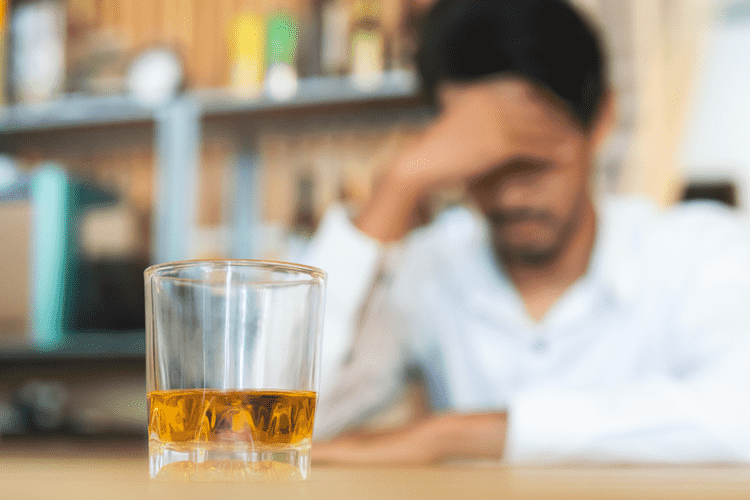However, chronic kidney disease that develops over years of heavy drinking may not be fully reversible. does alcohol kill kidneys Instead, the goal becomes slowing progression and preventing further deterioration. However, various factors like the amount consumed, the duration, and individual response to alcohol can influence the effects. Some of the first signs of kidney damage from alcohol are increased urination frequency, weakness, and fatigue.

Search Results
Alcohol has not been found to cause cancer to begin in the kidneys either, but cancers caused by alcohol in other locations may spread to the kidneys. They tell us that drinking https://carpinteriafeymo.es/2020/12/18/what-is-alcohol-intolerance-and-what-are-its/ too much can lead to serious kidney issues. Engaging with community support groups can provide encouragement and accountability for those looking to reduce their alcohol intake.
Definition and Symptoms
However, even these definitions are not perfect, as individuals process alcohol differently. Factors like metabolism, body weight, overall health, medications and more can influence the impact of alcohol on each person. Although moderate drinking might be acceptable for some, even small amounts of alcohol can harm someone with certain risk factors or pre-existing health conditions. Doctors who study kidneys say heavy drinkers face a big risk of losing all kidney function. Spotting kidney damage early and cutting down on drinking can help keep kidneys healthy. Drinking too much even on just one occasion can have negative effects on overall health.
- One of the primary ways alcohol affects the kidneys is by altering fluid balance.
- Kidneys are responsible for helping your body maintain a healthy balance of water and electrolytes.
- Ethanol administration in rats showed particular alterations in the renal antioxidant system and glutathione status 4,5.
- In fact, only two drinks per day can increase your risks of high blood pressure and result in kidney disease.
Pre-Existing Conditions That Put You at a Higher Risk of Kidney Damage
It also increased the risk of hypertension by 149% for stage 1 and 204% for stage 2. As mentioned, the kidneys will work to stabilize acid-base balance. However, there is no specific research on how wine affects potassium levels when consuming alcohol. Alcohol can either increase or reduce how much potassium is excreted by the kidneys. Alcohol affects this function of the kidneys within 20 minutes of consumption.
Another study by Plotnikov and colleagues (2009) showed that mitochondria isolated from rat kidneys were damaged by oxidative stress when incubated with myoglobin. This finding suggests that rhabdomyolysis and myoglobin toxicity may trigger oxidative stress in the kidney via mitochondrial injury. Over time, chronic alcohol consumption can cause kidney swelling and significantly reduce kidney function. The changes in the form and structure of the kidneys directly contribute to the development of alcoholic kidney disease 3. Alcoholic kidney disease is a condition that develops due to long-term alcohol abuse. It is characterized by structural and functional changes in the kidneys, impairing their ability to regulate fluid and electrolyte composition in the body.
Diet after kidney transplant

Individuals with existing health issues may need further moderation or complete abstinence. Heavy and sustained alcohol consumption can contribute to kidney problems. Acute Kidney Injury (AKI) can occur from severe alcohol intoxication, often linked to severe dehydration or conditions like rhabdomyolysis. AKI involves a sudden, temporary loss of kidney function, sometimes requiring dialysis. At that stage, the kidneys have moderate damage and are not functioning at full capacity. Additional drug addiction treatment alcohol use can stress the kidney even further and worsen kidney function.
One toxin that the kidneys handle, alcohol, is particularly pernicious. While the kidneys must remove it from the blood, it also harms them in the process. Since alcohol is a drying agent, it causes an imbalance in the kidneys’ fluid level. Alcohol also causes high blood pressure, which is a leading cause of kidney disease. In fact, only two drinks per day can increase your risks of high blood pressure and result in kidney disease.
Does Drinking Alcohol Cause Kidney Disease?
- It’s also important to avoid binge drinking, a pattern of drinking that causes your blood alcohol content to reach 0.08% or higher.
- Maintaining adequate hydration by drinking water can help counteract alcohol’s diuretic effects.
- Without adequate blood flow, the kidneys struggle to remove waste products and excess fluid from the blood.
- Read on to learn more about these conditions and how to treat them.
Regular, heavy alcohol use can also be harmful to your kidneys over time. According to the National Kidney Foundation, regular heavy drinking can double the risk of chronic kidney disease. The risk is even higher in people who drink heavily and also smoke. Binge drinking (usually more than four to five drinks within two hours) can raise a person’s blood alcohol to dangerous levels.
Leave a Reply